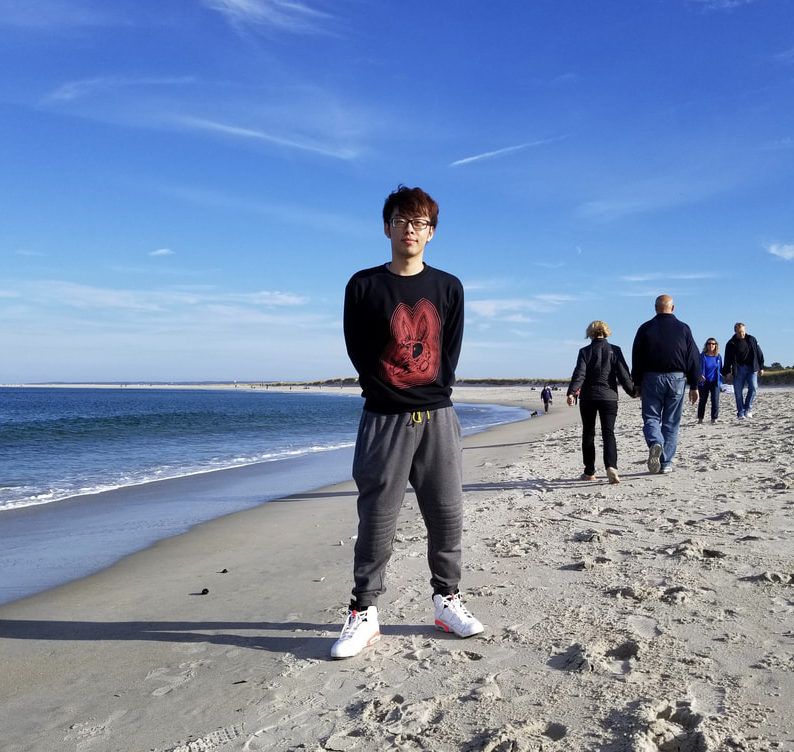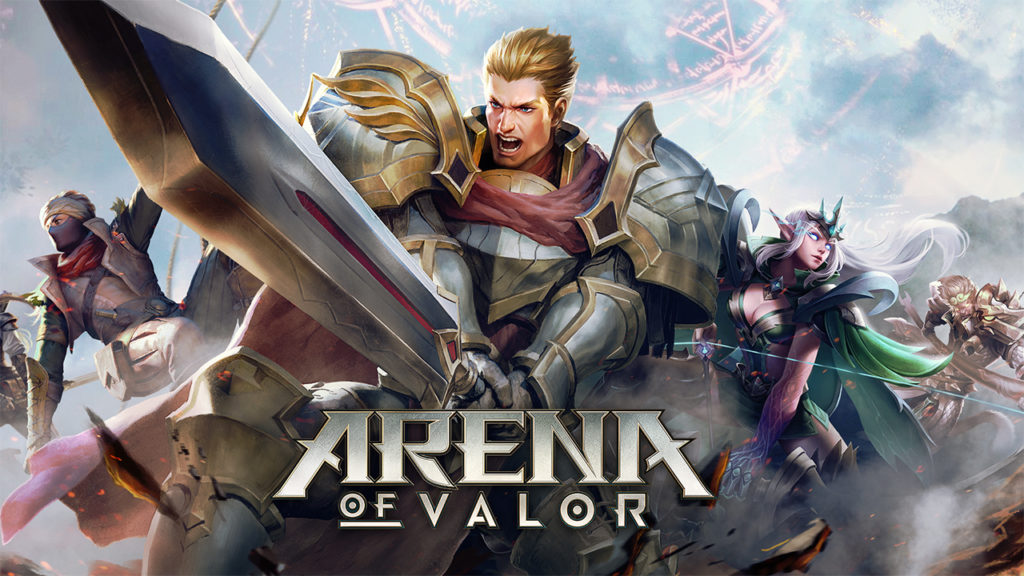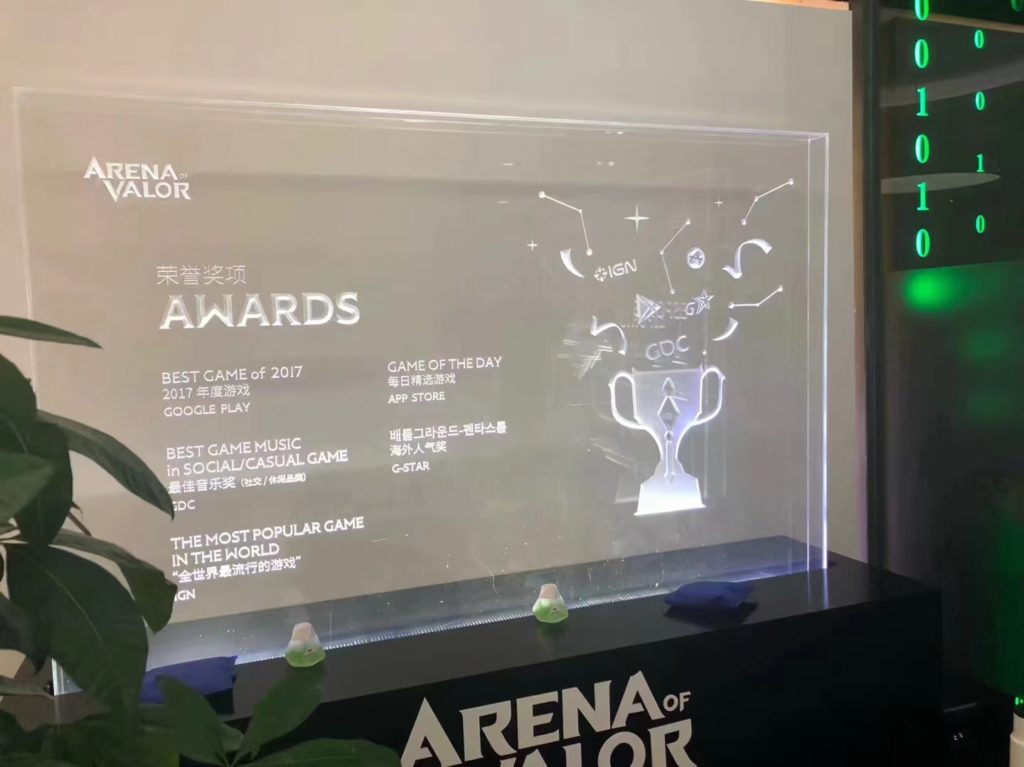
CAMD graduate student Wenqi Fan, M.S. in Game Science and Design, spent his fall semester as a game designer co-op at Tencent, an internet-based technology and cultural enterprise headquartered in Shenzhen, China. During his time there, he focused his research and work on multiplayer online battle arena (MOBA) mobile games. The role was a strong fit for Wenqi’s passions and skillset – and he plans to return to the company full-time when he graduates with his master’s in December.
“The game that I was most recently working on is a MOBA mobile game called Arena of Valor. It’s super popular in Asia and it also has servers in the world, including the U.S., Europe, etc. Our daily active users (DAU) is more than ten million,” said Wenqi. “While this is an example of my current work, for me, there have been lots of things to do during this internship period.”
Wenqi’s co-op position acquired a lot of responsibility. Every two weeks, he analyzed the games that were currently competing in the market and identified the top five games in global regions like China, United States, Japan, Korea, and more, examining why they were so popular in the areas (looking at mechanics, in-game activities, and players’ game behaviors).
“I was also taking charge of the optimization of the in-game tutorial, with the goal to decrease the total time of the tutorial as well as increase the retention rate of the new players,” Wenqi explained. “In addition, in order to have a better tutorial, I kept track of the retention data every day to see if I could find any valuable things through the increase or decrease of the retention data.”
For this tutorial project, Wenqi, along with his team members, had the opportunity to analyze the previous retention data of each level and played other MOBA games to see whether they have any tutorials that seem to be working more effectively.
“From this research, one thing we noticed was that our tutorial was too long, so players would leave the game and never come back in some levels,” he explained. “We also realized that some of the levels did not have strong guidance so players may have lost themselves and quit the game, so we provided more obvious guidance through the tutorial process.”

These are just a few of the outcomes of the in-game tutorial research project, something that Wenqi was entrusted with because he had related experience from his graduate work at Northeastern. He had previously conducted research called the “comparison of friendliness” of tutorials in Dota 2 and League of Legend (both online games) with Ge Zhu, a fellow Game Science and Design (GSND) graduate student.
Wenqi’s past experience and knowledge of the games industry also allowed him to actively contribute to the weekly meetings he had with his team during his co-op.
“I shared my knowledge because I have designed small games and have gained a lot of professional game knowledge, including level design, MDA systems, and user research throughout my time in the GSND program,” he described. “The Tencent team really appreciated my willingness to share these valuable things with them. For me, the knowledge that I have learned from the GSND program has helped me create a great connection between the school and the real game industry.”

One highlight from Wenqi’s co-op experience was working on an in-game taunting dance, where he designed his own standard for the choosing process based on the hero figure, players’ cultures, and the actions of movement and spell cast.
“As a designer, you cannot just choose the taunting dance based on your own preference and the hero models. You should combine other aspects, including the actions of spell cast and movement as well as players’ culture,” he said. “Then, the dance should be exaggerated, and they could easily represent players’ in-game moods.”
Once the taunting dance launched on the early access of the game Wenqi was working on, it gained great reviews from the players.
“I saw a video created by a fan on the YouTube and received 100,000 views and more than 1,200 thumbs up,” concluded Wenqi. “Other players also share their funny comments, which led me to notice that they loved the taunting dance that I selected for them.”
We look forward to seeing what research and implementations Wenqi will develop!

